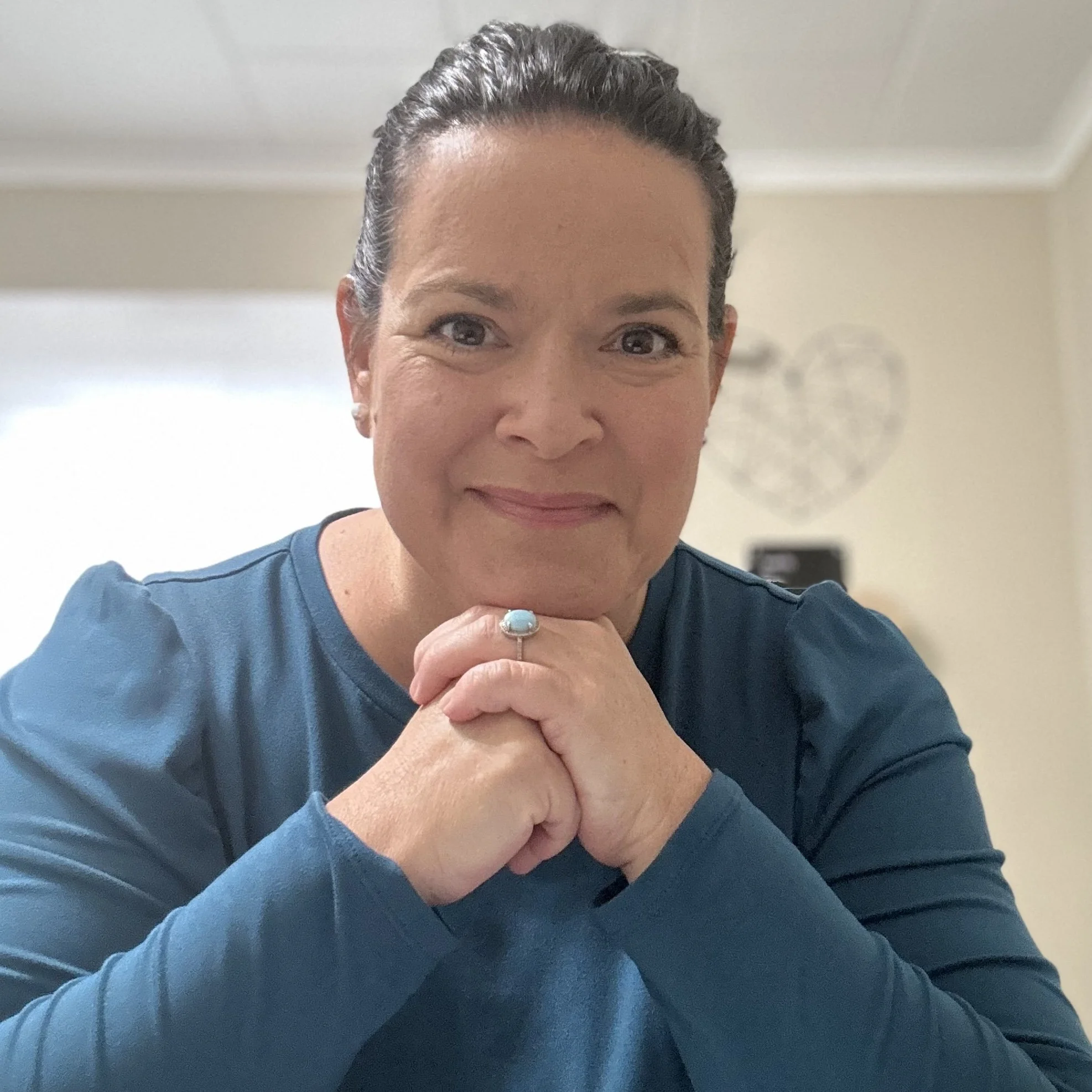Perinatal Mood and Anxiety Disorders: What to Look for When Screening
If you enjoy the podcast, please consider following and leaving a brief review. Your support will help us continue to fulfill our mission of bringing unique perinatal perspectives to a larger audience, so that we can all continue to lift one another up.
LISTEN ON: APPLE | SPOTIFY
Episode Notes
In the first episode of Perinatal & Reproductive Perspectives, Becky Morrison Gleed speaks with Lynn Ingram McFarland, founder of Ingram Screening, about perinatal mood and anxiety disorders (PMADs), why they are routinely missed, and how better screening practices can change outcomes for parents and families.
Drawing from her own lived experience of three untreated perinatal mood and anxiety disorders across three pregnancies, Lynn explains why screening must be human-centered, repeated, and integrated across care settings—not reduced to a single clipboard form or six-week postpartum check.
This episode lays the foundation for understanding PMADs as a public health issue, not an individual failure, and introduces practical tools, language, and advocacy strategies for both clinicians and parents.
“I would have never admitted, ‘What if I throw my baby off the balcony?’ to my pediatrician because it was not a safe space. The entire goal of my business model is to create safe spaces for moms like me to come in and have conversations.”
Show Notes
Introduction to PMADs (00:00:00)
Lynn shares her personal experience with anxiety and intrusive thoughts after childbirth.
Guest Introduction (00:00:48)
Becky introduces Lynn Ingram McFarland, owner of Ingram Screening, and the topic of PMADs.
Understanding PMADs (00:01:01)
Lynn explains the acronym PMAD, covering various disorders affecting perinatal individuals.
Importance of Screening (00:02:14)
Discussion on the necessity of screening for a broader range of PMADs beyond postpartum depression.
Lynn's Personal Story (00:03:18)
Lynn shares her journey as a three-time survivor of PMADs and the motivation behind Ingram Screening.
Business Model of Ingram Screening (00:03:54)
Explanation of Lynn's grassroots approach to consulting providers on PMAD screening programs.
Challenges in PMAD Recognition (00:05:54)
Discussion on the stigma and lack of responsibility among healthcare providers for maternal mental health.
Financial Incentives for Screening (00:07:10)
Lynn addresses the low reimbursement rates for screenings and the need for better integration across disciplines.
Public Health Crisis of PMADs (00:10:28)
Lynn highlights the alarming statistics on untreated PMADs and the importance of early screening.
Differentiating Baby Blues and PMADs (00:11:31)
Clarification on the duration and onset of baby blues versus postpartum depression.
Certification for Providers (00:12:09)
Importance of seeking certified professionals for support in PMADs.
Screening Tools Overview (00:14:06)
Lynn discusses the Edinburgh Postnatal Depression Scale and its limitations.
Alternative Screening Tools (00:15:06)
Introduction to other effective screening tools like the PHQ-4 and their benefits.
Best Practices in Screening (00:16:38)
Lynn emphasizes the need for face-to-face screening to create a safe space for mothers.
Humanizing the Screening Process (00:19:26)
Discussion on improving the screening process to foster better communication with patients.
The City Birth Trauma Scale (00:22:11)
Overview of the City Birth Trauma Scale and its significance in addressing birth trauma experiences.
The Importance of Partner Inclusion (00:23:52)
Discusses the significance of recognizing partners' trauma during childbirth experiences.
Screening for All (00:24:26)
Highlights that 1 in 10 dads and birthing individuals suffer from PMADs and need screening.
Diverse Populations and Screening (00:24:58)
Emphasizes the need for screening across various demographics, including immigrant and LGBTQ+ populations.
Understanding Screening Tools (00:25:26)
Explains the importance of using multiple screening tools for accurate assessment of PMADs.
Discernment in Screening (00:26:28)
Discusses the necessity of discernment when using screening tools to assess mental health.
Bridging Algorithms and Human Care (00:26:49)
Focuses on the balance between algorithmic assessments and personal interactions in screenings.
Normalizing PMADs (00:27:51)
Stresses that experiencing PMADs is common and should not lead to shame.
Personal Experiences with PMADs (00:28:21)
Speakers share their own struggles with postpartum anxiety and the need for better support.
Ingram Screening's Journey (00:28:52)
Lynn discusses the growth of Ingram Screening and the challenges faced in the field.
Research and Development in Screening (00:29:52)
Covers ongoing research aimed at improving screening tools for diverse populations.
Sensitivity and Specificity of Screening Tools (00:30:59)
Explains the importance of understanding the effectiveness of various screening tools.
Consequences of Not Screening (00:33:06)
Outlines the societal costs associated with untreated PMADs, including lost wages and healthcare costs.
Cost-Effectiveness of Early Treatment (00:35:27)
Highlights the financial benefits of early screening and outpatient treatment for PMADs.
Patient Advocacy and Resources (00:35:47)
Discusses tools and resources available for patients to advocate for their mental health needs.
Cultural Differences in Postpartum Care (00:37:00)
Compares postpartum care practices in the U.S. with those in other countries.
Advocacy and Mentorship for Survivors (00:39:10)
Encourages survivors to share their experiences and mentor others facing similar challenges.
Empowerment Through Knowledge (00:40:14)
Emphasizes the importance of understanding one's own body and advocating for mental health.
Finding Support and Hope (00:41:10)
Concludes with a message of hope for those experiencing PMADs, emphasizing community support.

